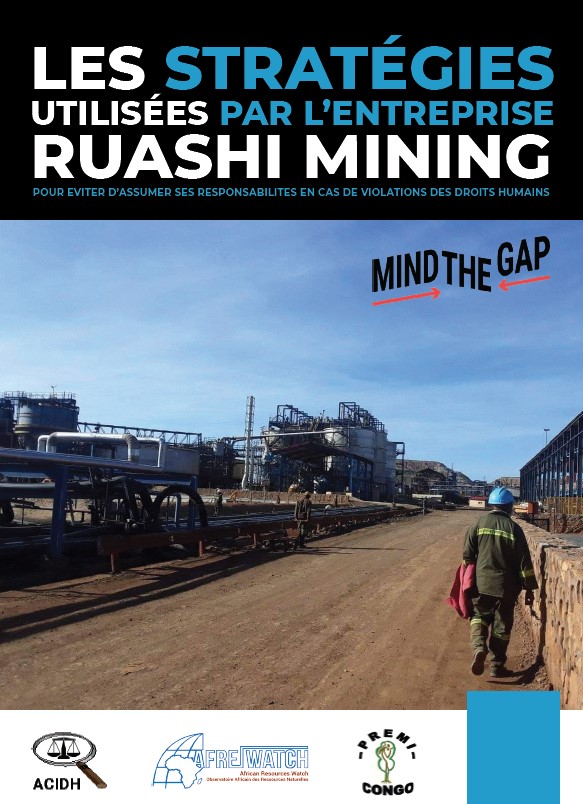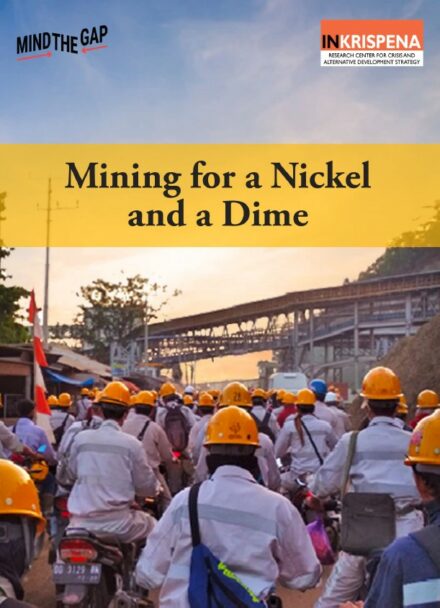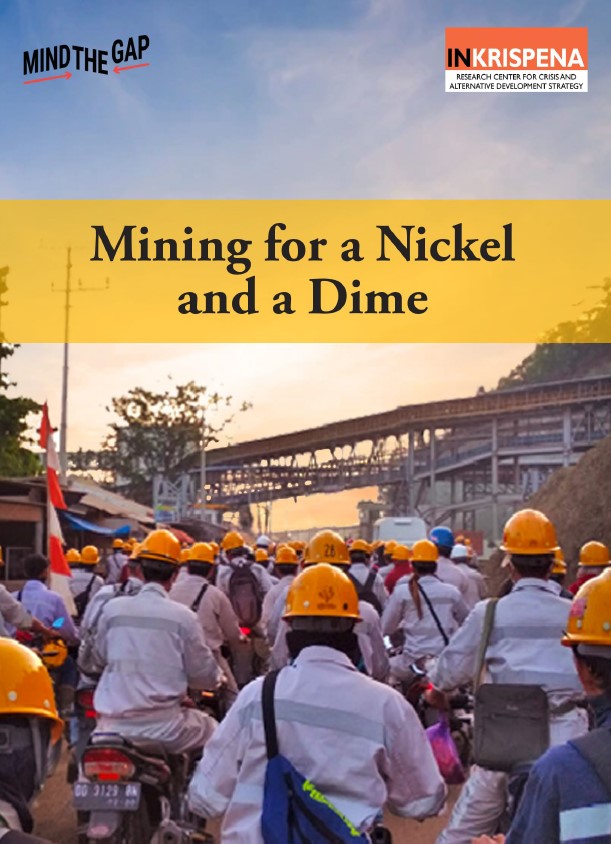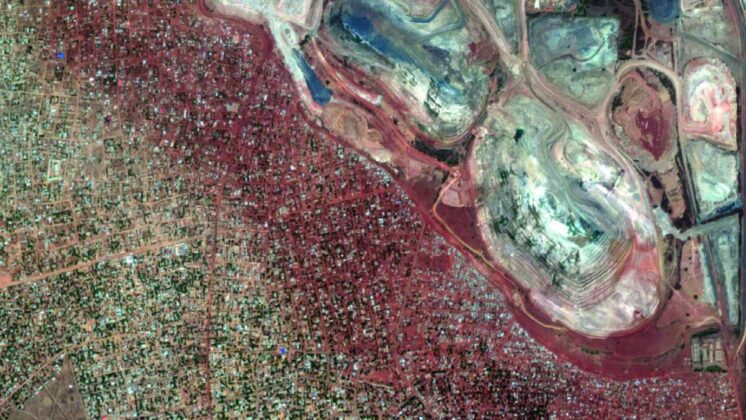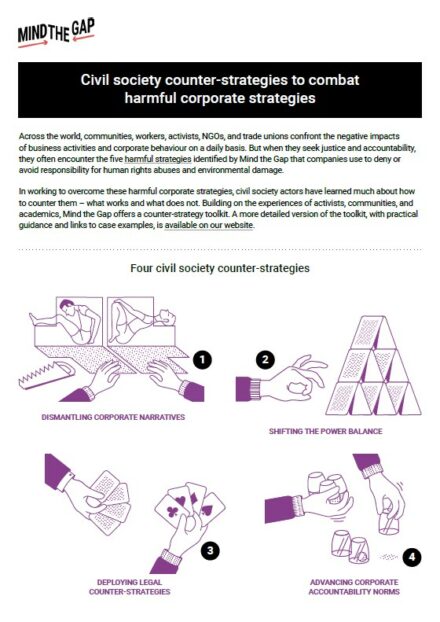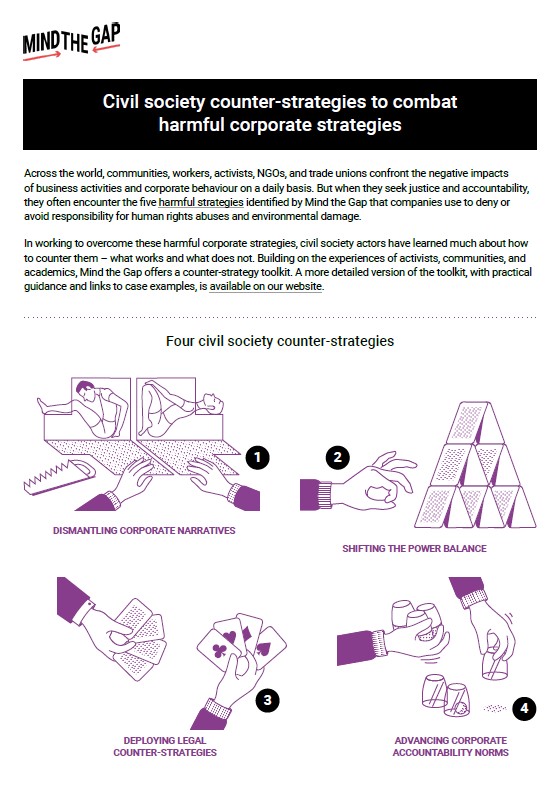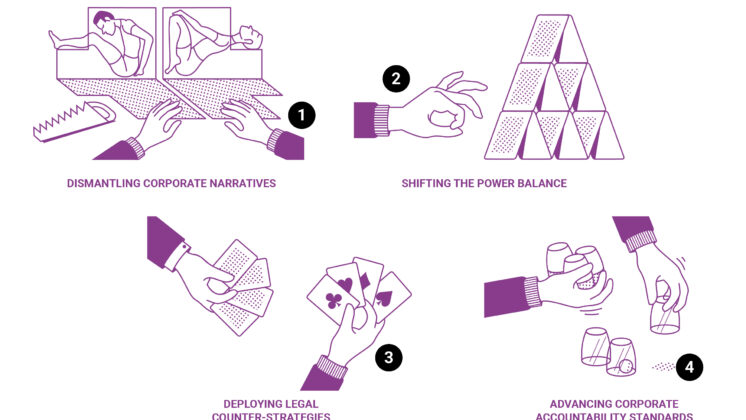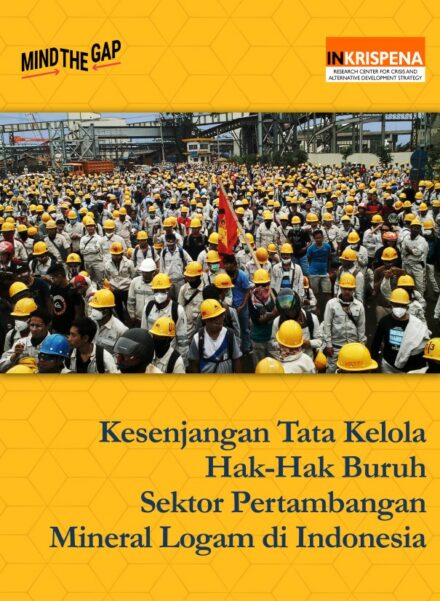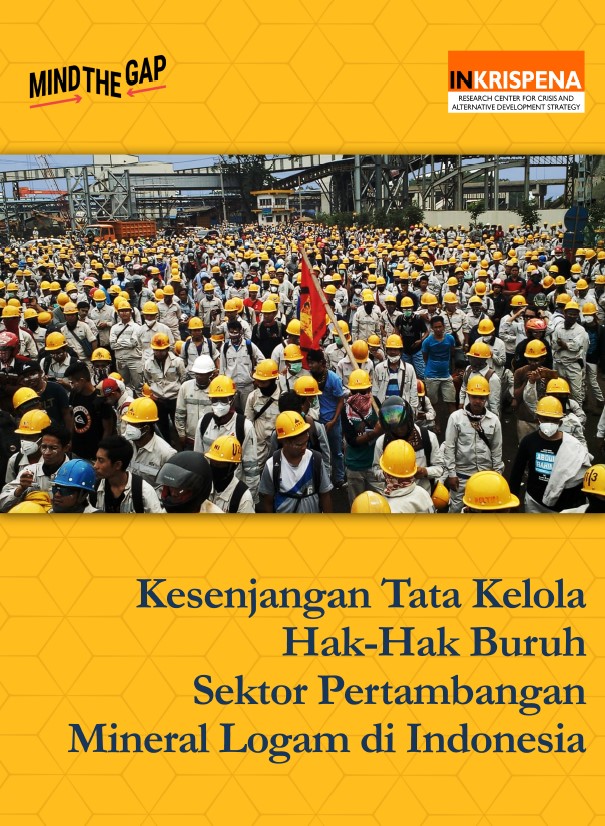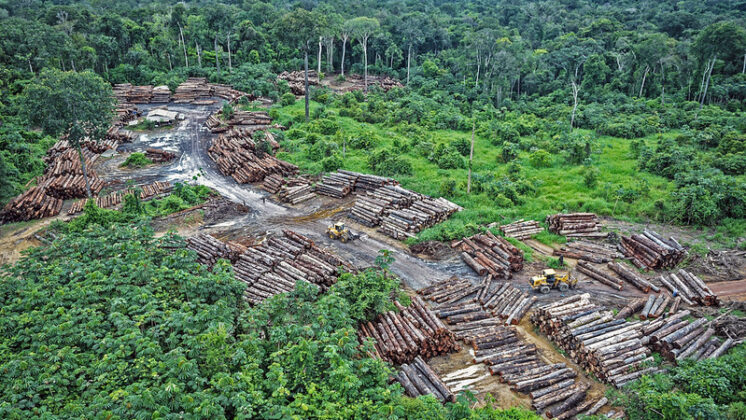This report is the result of joint research carried out from 2018 to 2020 by ACIDH, AFREWATCH and PremiCongo, as part of the “Mind the Gap” project. This project, conducted in four countries on three different continents, is being carried out by an international consortium of civil society organisations. It was designed to identify gaps in laws, regulations and policies that multinational companies exploit in order to continue operating without being held accountable for human rights abuses. In the Democratic Republic of the Congo (DRC), the consortium focused on Ruashi Mining.
Ruashi Mining, a subsidiary of the Chinese multinational Jinchuan Group, started mining copper and cobalt in the Democratic Republic of the Congo in 2004, when the country opened its mining sector to private investors. The company took over a former mining site of the state-owned Gécamines, located in Ruashi, a locality in the city of Lubumbashi. The inhabitants of Ruashi initially hoped that Ruashi Mining’s arrival would lead to improved living conditions, employment opportunities, social projects and better social infrastructure, such as education and health facilities.
However, the nearby communities in Luano, Kawama and Kalukuluku never saw their expectations met. Instead, they were deprived of their most basic rights, including the right to property, a decent home, food, water, a healthy environment, and even life. Since the establishment of Ruashi Mining, they have been victims of expropriations and relocations, dispossessed of their fields, houses and plots of land without (fair) compensation. Crops in their fields are regularly destroyed by effluent overflowing from the tailings ponds, and houses have been severely damaged by tremors caused by explosions in the mine. At least one local resident has died as a result of mismanagement of explosives by Ruashi Mining.
These negative impacts and lack of appropriate response by Ruashi Mining have led to protracted conflicts between the company and neighbouring communities that believe that the company does not care about their claims and allege that it uses various strategies to avoid taking responsibility for the impacts caused by its activities. The report found several indications of the use of these harmful strategies by Ruashi Mining: the use of state power, the distraction of stakeholders and dissemination of false information, threats against human rights defenders and communities, and the construction of deniability.
a) Utilising state power
Ruashi Mining appears to be taking advantage of the weakening of the state in the DRC. The company is thus able to transgress mining legislation with regard to environmental management and the rights of local communities under the complacent gaze of the Ministry of Mining, responsible for regulating the sector. State law enforcement agencies have repeatedly prevented local communities from demonstrating against the negative impacts of the company’s activities. In some cases, protesters have been assaulted or arrested.
b) Distracting and obfuscating stakeholders
Ruashi Mining’s management has developed the art of distracting communities and other victims of its activities by making promises the company does not fulfil. In some cases, the company resorts to misinformation to avoid accountability.
Ruashi Mining’s social contributions are often “pro forma”, a mere illustration of what the company should be doing. They lack consistency and have no real positive impact on the communities. They are also sometimes symbolic, not responding to the needs expressed by the communities. Rather, they seem aimed to please the political authorities and give a false image of the company.
c) Undermining defenders and communities
Community leaders involved in the protests against Ruashi Mining have been subjected to intimidation and harassment. Community leaders believe that they are targeted because of their protests against the company.
d) Constructing deniability
The use of private security companies can allow companies to disclaim responsibility for interaction with communities. Ruashi Mining hired private companies and entrusted them with much of the interaction with the protesters. In addition, Ruashi Mining has refused to share the information contained in its environmental studies with the surrounding communities and the general public.
Proposals for follow-up action
The report contains the following recommendations to counter these strategies developed by Ruashi Mining to avoid assuming its responsibilities whenever human rights violations occur:
1) Strengthen advocacy at local, national and international levels
With regard to regulations, civil society organisations should look into the laws and standards — in the DRC, China and at the international level — that are not taken into account by the company and advocate for their effective application. The new DRC mining code and environmental protection laws as well as international standards the DRC has agreed to adhere to are among those to be reviewed.
Efforts toward the effective implementation of national legislation should start with a thorough analysis of the legal texts. In their advocacy aimed at national decision-makers, civil society organisations should use the gaps between what the laws prescribe and company practices on the ground.
At the international level, civil society should follow a similar approach by analysing the international standards to which the DRC and the mining company have subscribed, then to compare the company’s commitments with its actual behaviour on the ground and point out the discrepancies. Civil society organisations should reach out to international bodies and seek their assistance in urging the company to improve its behaviour.
2) NGOs in the DRC must take far-reaching action at the local level
The lack of sustainable solutions for the negative impacts of the cobalt mine is at the root of the prolonged conflict between Ruashi Mining and the neighbouring communities. In order to resolve and remedy these impacts, civil society organisations should invest in supporting the affected communities with training activities, identifying and listing all impacts. DRC’s civil society organisations should help community members to build a file for each case in order to initiate steps to obtain justice. If direct engagement with the company fails, victims should be supported in bringing court cases.
3) Initiate legal action against Ruashi Mining
Civil society organisations should also consider global legal action against Ruashi Mining for its violations of human rights. Furthermore, they should follow up on the reopening of the court case between the family of Katty Kabazo, who died as a result of the mismanagement of explosives, and Ruashi Mining.
4) Initiate administrative or legal action against state officials
Civil society organisations should go through the mining code with public officials, identify individuals who have failed to comply with the code, and hold them accountable.
5) Build alliances between civil society organisations to improve the quality of their interventions in the Ruashi Mining case
Civil society organisations should stop working in isolation, review their working approach, and develop joint strategies and action plans to increase the efficiency of their work.
6) Use new information and communication technologies to publicise the violations committed by Ruashi Mining on a large scale
Make videos and use social media to widely publicise the violations by Ruashi Mining.
This is the executive summary of the report. The complete report is available in French below.
read more less
